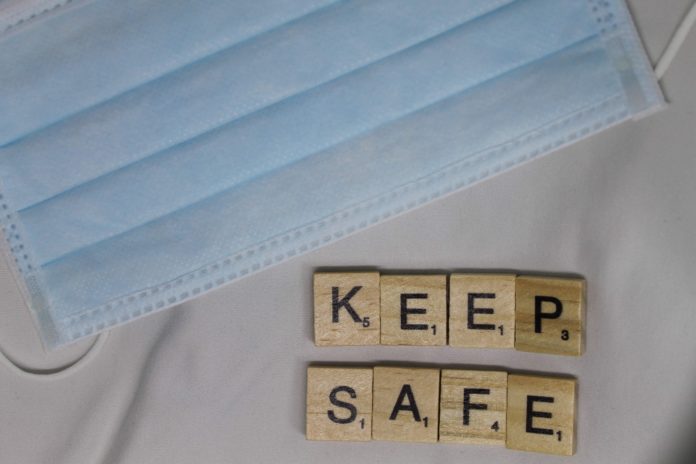In this time of COVID-19, we have all turned familiar with the general suggestions for staying safe and healthy. These involve often washing our hands, practicing physical distancing, and not touching our faces. These are all mindful actions that we should continue. Yet, there are extra precautions we can take to safeguard our health. These recommendations are especially essential for the elderly or those who are immunocompromised since they are at a greater danger of having the virus or an illness.
Healthcare providers should examine senior patients in a face mask. If you are an in-home caregiver for a senior patient, taking additional steps to keep your health is also recommended, as the demands of caregiving can compromise your immune system.
Below are some measures that you can add to your current routine, which will help those under your care and yourself.
Illness Precautions for Elderly Folks and their In-Home Caregivers
Enforcing actions that strengthen the immune system is beneficial for seniors and yourself.
- Physical activity – Having regular exercise is an excellent way to bolster your immune system, and it can lower the risk of contracting a cold by 33%.
- Sanitize frequently touched things – Practice regular sanitizing objects such as cellphones, other electronic devices, light switches, and doorknobs.
- Stay hydrated – Drinking enough or plenty of water is vital. Beverages like water and hot tea can keep nasal passages moist and prevent germs from coming into your body. Seniors have significantly less water in their bodies, so getting dehydrated can happen faster.
- Eat immune-boosting and healthy meals – A well-balanced diet that contains protein such as eggs, yogurt, or fish is another way to strengthen your immune system. Plus, it makes your bones stronger. As they say, moms are always right. Chicken soup is not only savory; it also has an infection-fighting ability.
- Get vaccinated with either flu or COVID-19 vaccine – Getting jabbed with either a flu vaccine or COVID-19 vaccine can add protection against contracting flu or covid virus. A yearly flu vaccination can make your body protected against viruses; yet, keeping safe is your priority.
Caring for a Senior Loved One Who is Ill
We may get sick sometimes even after looking after ourselves and taking precautions to prevent becoming ill. If you or an elderly loved one begins to develop symptoms, ensure you call a doctor and take necessarily prescribed medications. Especially for older adults, it is a must to seek help or treatment as soon as possible to stop an illness from turning more severe or possibly even fatal. Many doctors are now providing telemedicine, so you can safely get treatment from your home. Senior Buddies offers stroke care plans for your aging loved ones who are suffering from this condition. If an older adult you are caring for becomes sick, here are some helpful ways you can help.
- Get proper sleep – Ensuring enough sleep is essential for overall well-being. When an individual gets sick, sometimes sleeping becomes more problematic. Consider maintaining a 45-degree angle when your loved in bed so that nasal fluid can drain well and lower the chances of infection.
- Practice social distancing – Try to spend most of your time in a different room from the sick individual, at least initially when the person becomes contagious. You can still look after the unwell person by giving the essentials like food, tissue, and prescribed medications.
- Keep the surroundings adequately ventilated – Open window with direct blowing air is not a good idea for a sick person, but opening other windows at homes is beneficial. It enables fresh air to circulate through the house while transferring germs out of the house.
- Continue healthy eating and drinking habits – Even though appetite is less when someone is sick, we suggest that the ill person continue eating to fuel up their bodies with healthy and nutritious foods. Also, keep themselves hydrated by drinking plenty of fluids.
Understanding Illness Symptoms
As stated above, if a senior loved one or you become sick, seeing a physician is necessary. But as a patient, it is smart to know your symptoms so you can provide your doctor with all the needed details. Then, your doctor can give an accurate diagnosis.
Flu vs. Cold
The flu and the common cold have the same signs and symptoms. Still, older adults, in general, may not show the same symptoms as children.
Flu
Flu symptoms that are present in colds can also be seen in flu, like stuffy nose, runny nose, and a sore throat. In addition, there are other symptoms of the flu:
- Chills or fever (although some older adults may not experience fever)
- Dry or Sore throat
- Muscle or body pains
- Lightheaded or headache
- Exhaustion or fatigue
- Diarrhea and throwing up (more often noticed in children)
Cold
Cold signs are typically milder than those of the flu symptoms. Listed down are some common cold symptoms:
- Stuffy nose
- Runny nose
- Sneezing
- Nasal Congestion
- Sore throat
Let’s Keep Seniors and Their Caregivers Safe in the time of the Pandemic
At Senior Buddies, we are committed to providing your loved ones and your family with quality and outstanding in-home care services and healthcare assistance during the pandemic. Give us a call to learn more about our in-home care services and solutions for keeping your family safe.
















